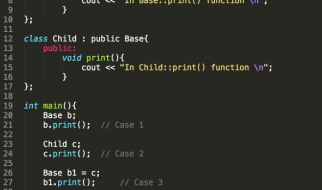2018 is the year of me learning how to listen well. This is what I?ve learnt so far about empathetic listening.
Seek to understand, before being understood
Empathetic listening is about really understanding the person who?s talking to you. That means it goes beyond active listening and deep into the zone of non-judging and empathy. Non-judgment while you listen to others means you can truly hear them with an open mind. Empathy refers to emotionally connecting with another person through identification, compassion, understanding, feeling, and insight. Empathetic listening is needed most when someone needs to be seen and heard, and are not particularly coming to you for a solution.
 Photo by Trung Thanh on Unsplash
Photo by Trung Thanh on Unsplash
Let?s understand what?s not empathetic listening
This list of 10 ways of listening that are not empathetic listening really helped me put things into context of moving beyond active listening and into empathy mode.
- Giving Advice like ?I think you should ??
- Explaining your situation ?But I didn?t mean to ??
- Correcting the person ?Wait! I never said that!?
- Consoling the person ?You did the best you could ??
- Telling a story ?That reminds me of the time ??
- Shutting down feelings ?Cheer up. Don?t be so mad.?
- Sympathizing ?Oh you poor thing ??
- Interrogating ?How come you did that??
- Evaluating ?You?re just too unrealistic.?
- One-Upping ?That?s nothing. Listen to this!?
This list doesn?t mean that the above ways are not valid ways of listening, it just means that it?s not for the occasion of empathetic listening.
What?s the need or purpose of empathetic listening?
The point of using empathetic listening is well summarised in this poem:
When I ask you to listen to me and you start giving me advice, You have not done what I asked.
When I ask you to listen to me and you begin to tell me ?why? I shouldn?t feel that way, you are trampling on my feelings.
When I ask you to listen to me and you feel you have to do something to solve my problems, you have failed me, strange as that may seem.
Listen! All I ask is that you listen; Not talk, nor do ? just hear me.
And I can do for myself ? I?m not helpless. Maybe discouraged and faltering, but not helpless.
When you do something for me, that I can and need to do for myself, you contribute to my fear and weakness.
But when you accept as a simple fact that I do feel what I feel, no matter how irrational, then I quit trying to convince you and can get about the business of understanding what?s behind this irrational feeling.
When that?s clear, the answers are obvious and I don?t need advice. Irrational feelings make sense when we understand what?s behind them.
Perhaps that?s why prayer works sometimes for some people; because God is mute, and doesn?t give advice to try to ?fix? things. He/She just listens, and lets you work it out for yourself.
So please listen, and just hear me, and if you want to talk, Wait a minute for your turn, and I?ll listen to you.
Anon
Empathetic listening is hard to do
Empathetic listening is hard to do. It means getting over ourselves, our needs, our opinions, and essentially our attachment to ?I?. Here are some tips that have helped me:
- Create a safe space for the person/s who needs to talk
- Pay attention to body language. Use attentive posture, comfortable eye contact, and gestures, expressions, and intensity that match the speaker?s
- Use thoughtful, open-ended, empathic questions to invite deeper thought and consideration: ?What were you feeling when that happened??
- Remind yourself that respectful empathetic listening is a gift you may give, and it does not mean ?I agree with you?
- When the speaker pauses, you can briefly summarise what you heard in your own words, without solutions (this is the hardest part). When you need to say something: introject, don?t interrupt
Imagine a butter knife inserted into a stream of water
Peter Gerlach gives a great analogy to keep in mind and course correct while empathetically listening: Imagine a butter knife inserted into a stream of water.
If you need to introject, for example, summarize or clarify something the speaker said, use words and body language that keeps the blade parallel to the flow (empathy) such that inserting it doesn?t disturb the flow (your partner?s focus and thought stream).
Refrain from inserting your needs, opinions, or thoughts, or simply put interrupting. This is like turning the knife-blade sideways in the water flow. Doing this signals that your awareness bubble is excluding the speaker and breaks effective communication.
I leave you with some wise words from a wise friend:
If you are framing a response when the other is speaking, you are not listening


